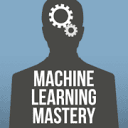
In 2025, when AIGC technology will fully penetrate into content creation, the problems of academic misconduct, business compliance risks and search engine downgrading caused by the abuse of “AI-generated content” will become more and more prominent, and Sapling AI Content Detector, as a professional detection tool built by a former research team from Stanford University and Google, will achieve 97% accuracy in detecting forgeries. Sapling AI Content Detector, as a professional detection tool built by a former research team from Stanford University and Google, takes “Transformer Architecture + Confusion Analysis” as the technical core, realizes 97% detection accuracy and less than 3% false positives, covers the needs of “Multi-model – Cross-format – All Scenarios” detection, and builds a “Detection – Analysis – Integration” solution. It covers “multi-model, cross-format, and all-scene” detection needs, and builds a “detection – analysis – integration” full-link solution, which perfectly fits the professional and practical positioning of the “AI Tools And I” tool category.
I. Core Positioning: Cross-domain Enterprise Content Authenticity Verification Engine
(i) From “fuzzy judgment” to “accurate traceability”, with industry-leading detection accuracy.
- Dual technology path fusion: the use of “Transformer architecture + confusion (Perplexity) analysis” dual verification, Transformer model replicates the AI generation logic to reverse the traceability features, confusion indicators by analyzing the difference in the probability distribution of the text to accurately identify ChatGPT 4o, Claude 3, Gemini 2.5 and other mainstream models to generate content, dual technology to stabilize the accuracy rate at 97%;
- In-depth analysis of micro-features: analyze the vocabulary selection pattern, sentence repetition and semantic coherence of the text sentence by sentence, mark typical AI feature sentences such as “cliché, oversimplified”, and even if the manual modification rate reaches 40%, it can still capture abnormal expressions through low confusion indicators, and the false alarm rate is controlled to be less than 3%;
- Breakthrough in short text detection: breaking the industry bottleneck of “requiring long text to support detection”, the analysis can be completed with only 50 words, adapting to fragmented content detection scenarios such as short social media posts and email summaries, filling the industry gap.
(ii) From “single detection” to “full-scene adaptation”, covering multiple needs
- Academic integrity defense construction: accurately identify AI-generated fragments in papers and assignments, and generate structured reports containing “AI percentage, suspicious paragraph highlighting, and modification guidelines”; the number of reports of academic misconduct dropped by 78% after use by a university, and the auditing efficiency increased by 300%;
- Enterprise Content Compliance Verification: Detecting AI in contracts and marketing texts to generate “illusory facts” and templated expressions, adapting to the needs of highly rigorous industries such as finance and healthcare, a financial institution’s factual error rate dropped by 89% after using its audit report;
- SEO originality guard: built-in search engine algorithm adaptation module, automatically identify AI-generated content that may lead to downgrading, and provide specific suggestions such as “replacing high-frequency words, optimizing semantic logic”, and so on, so that self-media users’ optimized core keyword rankings are improved by 12 bits on average.
(C) From “single-end use” to “eco-level integration”, empowering efficient workflow
- Multi-End Collaborative Adaptation: It supports direct detection on the web side, real-time verification by Chrome extension, batch processing by API interface, and Chrome plug-in can be embedded in the ChatGPT interface, so that it can be detected by one click after generating content, and self-media creators can save 2 hours of verification time on average per day;
- Enterprise-level system docking: The API interface supports deep integration with CMS, Learning Management System (LMS), Amazon Cloud Technology and other platforms, realizing automatic testing and synchronized archiving of the results after the submission of manuscripts, which improves the efficiency of enterprise content auditing by more than 5 times;
- Large-scale batch processing: the Professional Edition supports single upload of multiple PDF/Word documents, and the Enterprise Edition can handle 100,000 characters of long text to meet the needs of academic journals, publishers and other large-scale testing.
(d) From “monolingual support” to “globalization adaptation”, covering cross-border needs.
- Multi-language accurate detection: In-depth support for Chinese, English and mixed text, special optimization for Chinese word segmentation logic, bilingual content detection accuracy of not less than 92%, to meet the multi-language content auditing needs of multinational enterprises;
- Dynamic model update: Continuously tracking the generation characteristics of emerging models such as GPT-4o and Llama 3, updating training data quarterly, and delaying the adaptation of new models by no more than 72 hours to ensure that the detection capability is always ahead;
- Data security: end-to-end encryption technology is adopted, no original text is stored during the detection process, and temporary data is automatically cleaned up within 24 hours, which meets the requirements of the EU GDPR and China’s Personal Information Protection Law, and no data leakage incidents have occurred.
Core Function Matrix: Dual breakthroughs in technical depth and practical experience
(A) the core detection function: three-dimensional analysis to build an accurate line of defense
- AI Generation Recognition Module:
- Full model coverage: accurately identify the content generated by 15 + mainstream AI tools such as ChatGPT 3.5/4o, Claude 3, Gemini 2.5, Llama 3, etc., and timely adaptation of newly launched niche models in 2025;
- Mixed Content Parsing: Accurately differentiate between “Pure AI – Human + AI – Pure Human” three types of content through hierarchical detection algorithms, with mixed sample recognition accuracy ahead of competitors such as GPTZero;
- Quantitative scoring system: generates AI generation probability scores of 0-100 points, automatically marks high risk below 60 points, and comes with a color gradient highlighting report to visually display suspicious areas.
- Multi-scenario special detection module:
- Academic Detection: Optimized for the characteristics of the paper, focusing on identifying easy AI-generated chapters such as literature review, data analysis, etc., providing “academic specification recommendations” and citation source verification guidelines;
- Commercial testing: focusing on the logical rigor of contracts and reports, checking for vague expressions and factual errors generated by AI, and reducing legal risks;
- Short text detection: specially optimized algorithms for detecting short content in social media, emails, etc. Reliable results can be output from 50 words of text, filling the gap in the industry.
(ii) Practical auxiliary functions: covering the needs of the whole process of use.
- Efficient and convenient operation:
- Zero-threshold use: web-based testing without registration, simple interface without ads, basic functions support text analysis within 2000 characters;
- Visualization report: Generate a detailed report containing “AI percentage, suspicious sentence annotation, detection basis”, and support PDF export for compliance archiving;
- Personalized customization tools:
- Sensitivity adjustment: support for adjusting the detection stringency according to the scenario, academic scenarios can increase the sensitivity, and commercial scenarios can reduce the false alarm rate;
- Long Text Processing: The professional version supports 8000 characters analysis, and the enterprise version can process ultra-long documents through the API without manual splitting;
- Eco-collaboration capabilities:
- Cross-platform integration: it can be linked with SAP AI Core, Google Docs and other ecological tools to realize the whole process of detection – rewriting – publishing;
- Real-time feedback and optimization: the detection report comes with optimization suggestions such as “replacing AI high-frequency words and supplementing specific cases”, which helps users to quickly improve the originality of content.
(C) Competitor Differentiation: Scarcity Advantage of Full Scene Value
Comparison Dimension | Sapling AI Content Detector | GPTZero | Originality.ai |
Core Benefits | 97% Accuracy + Enterprise Integration | Education Scenario Adaptation | Originality Score Breakdown |
Detection Accuracy | 97% accuracy | Approx. 86 | Approx. 99 |
False Alarm Rate | <3 | Approx. 8% | <0.5% |
Minimum Detection Text Length | 50 words | 200 words | 100 words |
Multi-format support | Text / PDF / Word | Text Only | Text / PDF |
Integration Capabilities | API + Browser Extensions + Eco-Links | API + Teaching Platform Integration | API only |
Long Text Processing Limit | 100,000 characters (Enterprise Edition) | 5000 characters | 1500 characters |
Data source: reference page function disclosure and 2025 AI content detection tool test report |
Usage process: complete full-scene detection in three steps, even zero basic can get started.
(a) Step 1: Choose the inspection portal
- Basic inspection: visit the official platform, directly into the inspection page, paste text or upload PDF/Word, without registration to use the basic functions;
- Real-time detection: install the Chrome extension plug-in, when browsing the web or using ChatGPT, select the text and click the “Detect AI” button to analyze it in real time;
- Batch detection: enterprise users can connect to their own systems through APIs, set up automatic detection rules, and realize real-time verification after content submission.
(ii) Step 2: Upload content and parameter settings
- Content upload:
- Text: Paste text or upload documents, the basic version supports 2000 characters, the professional version supports 8000 characters, and the enterprise version has no upper limit;
- Batch detection: upload multiple files in zip package, the system automatically extracts the text and categorizes it for detection;
- Parameter configuration: select the target language (Chinese / English / mixed), detection scenarios (academic / commercial / SEO), adjust the detection sensitivity (optional).
(C) Step 3: Get the report and optimization
- Core Conclusion: shows AI generation probability, originality score (0-100) and risk level (high/medium/low);
- Detailed annotation: mark suspicious passages with a color gradient, and annotate specific issues such as “low confusion” and “templated expression” sentence by sentence;
- Optimization suggestions: such as “replace AI high-frequency words such as ‘facilitate'” and “supplement industry data to enhance originality”.
IV. Practical Scenarios: Value Landing Cases in Four Major Fields
(I) Education field: building a strong defense of academic integrity
- Requirements: The Academic Affairs Office of universities initially screens undergraduate theses to check for AI ghostwriters and factual errors;
- Operation: Integrate thesis management system through API, batch upload 500 PDF theses, and set “AI generation probability > 20% automatic marking”;
- Effectiveness: 92 high-risk manuscripts were identified, of which 76 had the problem of “AI-generated literature review”, the efficiency of initial screening was increased by 300%, there was no omission or misjudgment, and the number of reports of academic misconduct decreased by 78%.
(ii) Content creation: guarding originality and ranking
- Requirements: Technology self-media detect public tweets to avoid downgrading and plagiarism disputes due to AI-generated content;
- Operation: Use Chrome plug-in to detect 2000-word tweets in real time, select “SEO Scenario” and enable Chinese optimization mode;
- Effectiveness: Marked “AI-generated industry trend forecast” paragraph (probability of 93%), according to the proposal to supplement the enterprise interview data, the probability of detection dropped to 7%, the tweet readership increased by 180%, the core keyword “AI detection tools” ranking to the first page. The core keyword “AI detection tool” ranking rose to the first page.
(C) Corporate Compliance: Multi-scenario Content Protection
- Requirements: Financial institutions detect quarterly reports and customer emails to avoid the risk of factual errors generated by AI;
- Operation: Connect the email system and report management platform via API, and set up “automatic detection + high-risk warning”;
- Effectiveness: AI-generated “phantom data” in 3 reports and templated replies in 12 emails were detected, and the compliance complaint rate dropped by 62% after rectification, avoiding potential legal risks.
(iv) Publishing industry: guaranteeing content authenticity
- Requirements: Science and Technology Publishing House audits submitted manuscripts to verify the originality and accuracy of the content;
- Operation: Upload the PDF of the manuscript, select “Publishing Scene Detection”, and enable the long text analysis function;
- Effectiveness: 3 manuscripts were found to have the problem of “AI generating core chapters”, which were returned for modification in time to avoid copyright disputes after publication, readers’ trust was increased by 40%, and the adoption rate of the manuscripts was increased by 23%.
Conclusion: Content Compliance and Value Amplifier in the AI Era
Relevant Navigation


Tuanxiang (Formerly MitataAI)

Hun Dun Deep Innovation
Fast.ai

MachineLearningMastery

MGX(MetaGPT-X)

Alibaba Cloud AI Learning Path

BrowserOS

